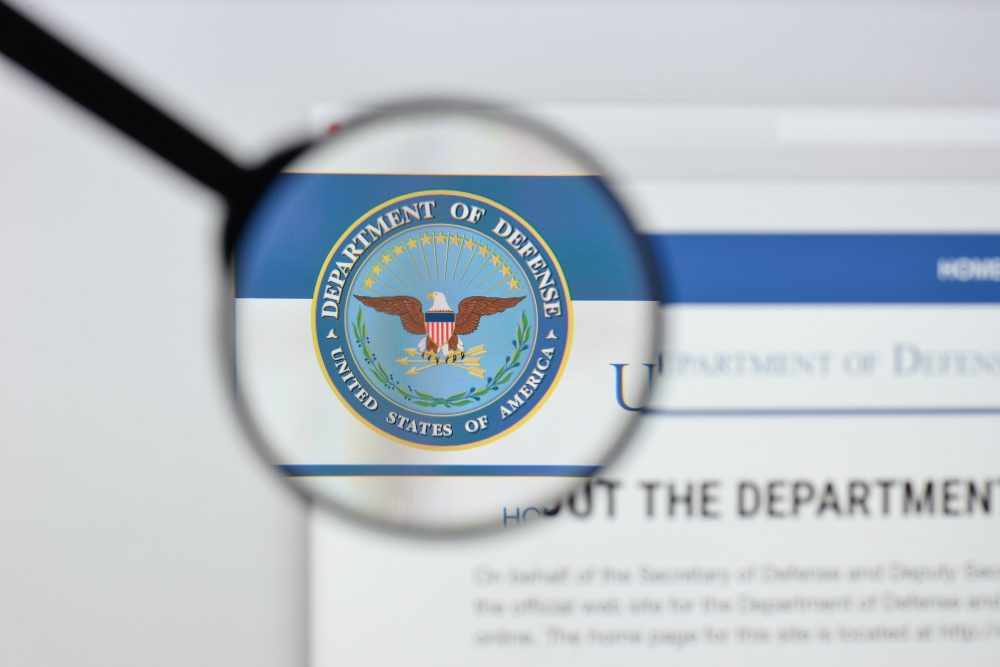How Does the Department of Defense Define “Extremist Activities?”

In recent years, the U.S. Department of Defense has worked harder to detect and mitigate the threat of extremist activities by personnel in the department. This work culminated in a series of recommendations adopted by the Secretary of Defense in 2021. These recommendations included an update to the DoD’s definition of extremist activity.
History of DoD Efforts Against Extremist Activity in the Armed Forces
The Department of Defense first adopted policy guidance in 1969 regarding extremist activity by members of the Armed Forces. Over the next five decades, the department’s guidance has been updated. These updates occurred in response to specific incidents of extremist activity by military personnel or DoD employees.
Following several insider attacks on DoD facilities, Congress instructed the department to conduct a review of its policies to close gaps in personnel vetting. Congress was to focus on improving detection of the use of online platforms by criminal gang or extremist groups. In 2020, the Army published an updated command policy. This new policy was the first of its kind in the DoD to address the use of social media, identifying online conduct that would be identified as prohibited extremist activity.
After being appointed in early 2021, Secretary of Defense Lloyd Austin issued two memoranda regarding prohibited extremist activity in the armed forces. The first memorandum ordered a one-day stand-down so that commanders could have discussions with personnel regarding extremism. These discussions would include the topics of impermissible behaviors and procedures for reporting actual or suspected extremist activity. The second memorandum established a working group to implement immediate action items identified during the stand-down, as well as to develop long-term recommendations. The immediate actions implemented by the working group included a review and update of the DoD’s official definition of prohibited extremist activity.
Recent Updates to the DoD’s Definition of “Extremist Activity”
Before the most recent amendments to the DoD’s definition of prohibited extremist activity, the department’s policies prohibited servicemembers from “active advocacy” of “supremacist, extremist, or criminal gang doctrine, ideology, or causes, including those that advance, encourage, or advocate the use of force, violence or criminal activity, or otherwise advance efforts to deprive individuals of their civil rights.” Servicemembers were additionally prohibited from “active participation” in such groups. However, the stand-down revealed a need to clarify the meaning of the prohibition on “active participation” and what kinds of groups, ideologies, or causes would fall within the definition of “extremist activities,” particularly when it came to online activities.
The updated DoD definition of “extremist activity” includes these behaviors:
- Advocating or engaging in unlawful force or violence or other legal means to deprive individuals of their rights under federal, state, or local law
Advocating or engaging in unlawful force or violence to achieve goals of an ideological, political, religious, or discriminatory nature
Advocating, engaging in, or supporting terrorism in the U.S. or abroad
Advocating, engaging in, or supporting the overthrow of the U.S. or any state or political subdivision by force or violence, or to alter the form of government by unconstitutional or unlawful means
Advocating widespread, unlawful discrimination
“Active participation” was also redefined to mean:
- Advocating for or engaging in the use or threat of unlawful force or violence
- Providing material support or resources to people or organizations that promote or threaten the use of unlawful force or violence, with the intent to support violence or threats of violence
- Knowingly communicating information that compromises military operational security
- Recruiting or training others to engage in extremist activity
- Fundraising or making financial contributions to extremist groups
- Demonstrating or rallying in support of extremist activities
- Attending a meeting or activity about extremist activities that involve violence or a breach of law and order
- Engaging in electronic communications regarding extremist activities, including posting, liking, sharing, or distributing social media content, with the intent to promote or endorse such activities
Contact a Federal Employee Rights Attorney for Help with Your Case
If you have been subjected to adverse employment actions that you believe violate your rights or federal laws and regulations, call the Vaughn Law Firm at (877) 615-9495 today for a confidential case review to discuss how our Georgia federal employment lawyers can help you.


